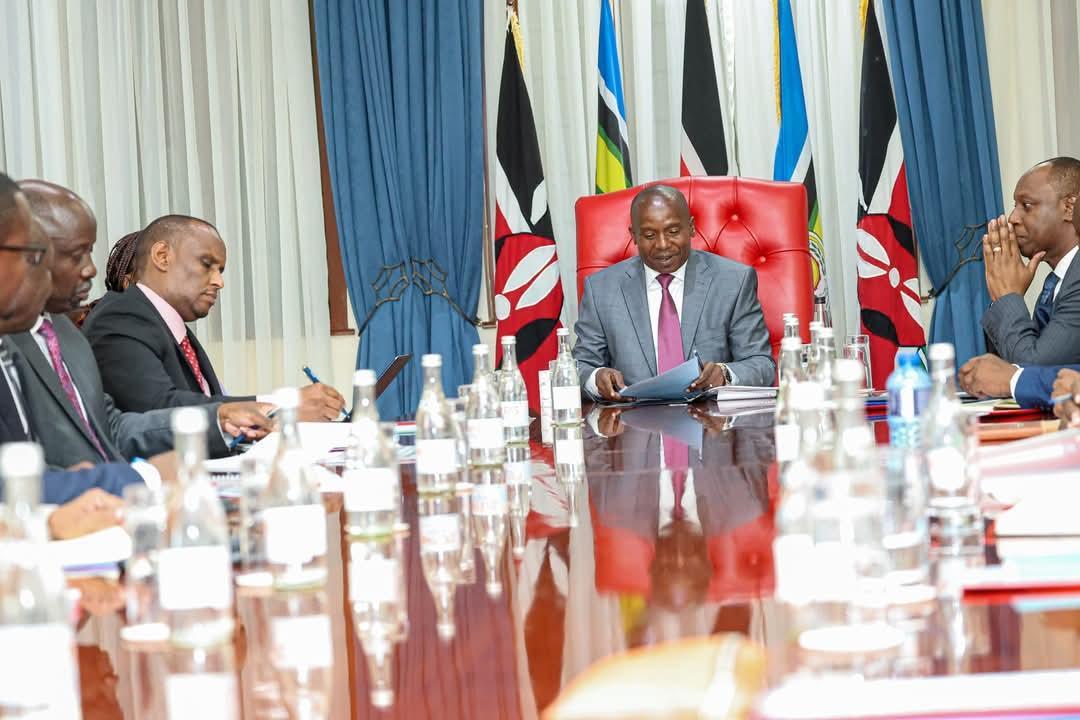Africa-Press – Kenya. Deputy President Kithure Kindiki has said that the government is committed to increasing household incomes through commmercialisation of the livestock sector.
He spoke on Tuesday when he hosted senior officials of the Ministry of Agriculture over commercialisation of the livestock sector at his residential place in Karen, Nairobi.
“The government is committed to the commercialisation of the livestock sector to increase household incomes, from livestock and livestock products including beef, dairy, leather and other value chains in the sector,” Kindiki said.
Kindiki said the national livestock vaccination programme, the Kenya Leather Industrial Park (KLIP) and the enhancement of farmer earnings from milk are some of the interventions that are on course in the implementation.
He noted that earnings from milk and dairy products have significantly increased during the last three years, from Sh4.9 billion in 2022, up to Sh7.5 billion in 2023 and Sh9.5 billion in 2024.
Kindiki has been championing the improvement of the livestock sector. In January, the DP said the main reason the livestock vaccination exercise was rolled out was to help create more wealth for herders.
Speaking during a consultative meeting with leaders from Isiolo County on the implementation of state projects on January 30, 2025, he noted that Kenya is the third-largest livestock-keeping country in Africa but cannot export its animal products because of the risk of some diseases.
The Deputy President insisted that only vaccination would unlock this hold-up.
“Kenya has the third-largest livestock herd in Africa, after Sudan and Somalia. We have 22 million cows and 50 million small stocks; goats and sheep. We must vaccinate all our livestock to help create wealth and get maximum returns for our herders and livestock keepers,” Kindiki said.
“We have great market openings abroad but we cannot export our meat and milk products if our animals have disease doubts. Vaccination will resolve this problem.”
He went on to say that with the vaccination, the government is also looking at leather products value chains from the livestock, which experts have said has more value as opposed to meat and milk products.
Kindiki said currently, the leather sector gives an annual income of Sh10 billion but with the completion and operationalization of the Kinanie Leather Industrial Park, the income will rise to Sh150 billion yearly.
For More News And Analysis About Kenya Follow Africa-Press






